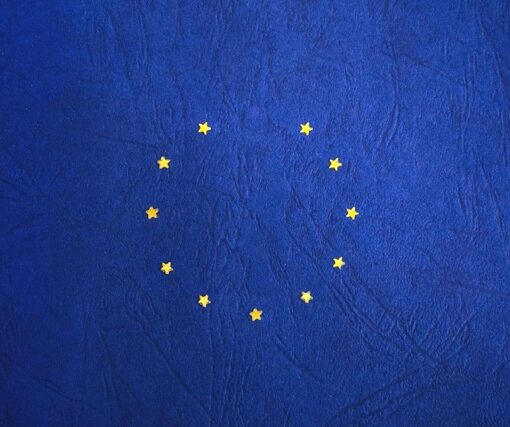By Ibrahim Ati
On September 8, 2023, the Belgian Court of Cassation initiated a radical shift in established arbitration law by challenging the sovereignty of the Fédération Internationale de Football Association (FIFA) and other sports governing bodies when their awards intersect with European Union (EU) law.[1] This move will likely ignite a profound reconsideration of the enforceability and recognition of Court of Arbitration for Sport (CAS) awards within the EU’s legal framework when based even partly on European law elements. At its heart, the pivotal query, for which the RFC Seraing and its legal representatives advocated for years across multiple forums to bring before the Court of Justice of the European Union (CJEU), is historical in nature: Does European law permit the scrutiny of an arbitral award, such as those emanating from CAS, for compliance with EU law by a non-EU member state’s court, when the non-EU member state, in this instance Switzerland, home to both CAS and FIFA, cannot request preliminary rulings from the CJEU?
This article will delve into the decision’s context and the delicate balance between sports autonomy, arbitration and the judicial review of awards by state courts based on EU legal principles.
Navigating the Legal Timeline: From FIFA Disciplinary Proceedings to Arbitrators, State Courts, Court of Cassation, and Finally, CJEU’s Review
In 2014, FIFA introduced a significant change in the world of football by implementing a ban on third-party ownership (TPO). The new measure forbids clubs and players to enter into agreements with third parties, “whereby [the] third party is [] entitled to participate…in compensation payable in relation to the future transfer of a player…or is being assigned any rights in relation to a future transfer or transfer compensation.” It was also meant to generally improve the transparency and integrity of player transfers and contracts, ensuring that financial interests did not unduly influence these transactions.
The following year, RFC Seraing, a Belgian football club, ventured into agreements involving the sale of economic rights of specific players. Although this practice was common among clubs at the time, particularly for smaller entities that compete against larger European counterparts, it directly conflicted with FIFA’s newly imposed ban on TPO, which rigorously enforced this prohibition, actively pursuing sanctions against those who did not comply. RFC Seraing was then sanctioned by the FIFA Disciplinary Committee, and the Belgian club’s appeal in 2016 was rejected by FIFA’s Appeal Committee, upholding the sanctions imposed for violating rules against the TPO. As part of the sanctions, the club was fined CHF 150,000, receiving a reprimand and warning as well.
FIFPro and UEFA, distinct entities closely associated with FIFA, also took a decisive step in March 2015 by filing a complaint with the European Commission on the distortive impact of TPO agreements on player recruitment in the EU, echoing support for FIFA’s TPO ban. They alleged that the ongoing practices around player transfers violated EU principles established in the past by the European Commission following its investigation of European football transfer rules. These principles were articulated by Mario Monti, the then Competition Commissioner, who emphasized that the reforms balanced the players’ right to free movement with the need for contract stability and sport integrity.
Shortly thereafter, in April 2015, the influential Spanish and Portuguese football leagues, home to numerous World Cup champions and international soccer stars such as Messi, Neymar, with considerable leverage within UEFA and FIFA, joined forces with RFC Seraing in filing a parallel complaint themselves with the European Commission, accentuating the internal dissensions. This collaborative endeavor aimed to highlight their apprehensions regarding the distorting impacts of FIFA’s TPO ban on player recruitment in the EU, which the European Commission eventually rejected in 2017.
The case progressed to the CAS, challenging the FIFA Committee Appeal decision in Switzerland. This appeal contested a final decision of the FIFA Appeals Committee regarding a member club of a national federation affiliated with FIFA. FIFA’s initial decision was upheld at the CAS, leading to a subsequent review by Switzerland’s highest court in February 2018.
Regarding the applicable law, the Arbitrators’ Panel, in accordance with Art. R58 of the Code and Art. 66 para. 2 of the FIFA Statutes applied FIFA’s internal regulations, specifically Art. 18bis and 18ter of the RSTJ, while also considering Swiss law and European Union law, specifically, provisions related to the freedom of movement of capital (Art. 63 TFEU), the freedom of movement of workers (art. 45 TFEU) and the freedom to provide services (Art. 56 TFEU).[2] These principles were deemed fortified by Art. 15 (pertaining to the freedom to pursue a trade or profession and the right to work) and Art. 16 (encompassing the freedom of enterprise) of the EU Charter of Fundamental Rights.[3]
In its decisive February 2018 verdict, translated here, the Swiss Federal Court systematically dismissed all legal contentions put forth by the appellant, RFC Seraing. The appellant’s claims, rooted extensively in assertions of violations of public order and policy, as well as allegations of an unfair hearing process during the CAS proceedings, particularly concerning accusations of a certain conflict of interest with the arbitrators appointed by FIFA, were resoundingly rejected. Additionally, the Court determined that the elements of EU law cited by the Belgian club did not clearly establish the extent to which EU legal principles had been violated.
Concurrently, RFC Seraing initiated legal proceedings in Belgium through the Commercial Court of Brussels, which, on November 17, 2016, declared itself without jurisdiction and international competence to hear claims against FIFA and UEFA. The plaintiffs appealed on December 19, 2016, to the Brussels Court of Appeals, where the claims and the request for CJEU review were also rejected. Subsequently, the case underwent a review by the Belgian Court of Cassation, concluding on September 8, 2023.
The Belgian Court of Cassation’s challenge
Until now, the proceedings had largely followed the familiar path of established FIFA rulings, resulting in disciplinary actions against the club, a decision that was subsequently confirmed during the Swiss national court’s review. However, a remarkable and unexpected turn of events unfolded when the Belgian Court of Cassation, in a bold and unprecedented move during the Belgian proceedings eight years after the initial hearings, threw its substantial support behind the club’s legal challenge, staunchly opposing FIFA’s position. This sudden support to RFC Seraing’s desperate queries, reflected in the Court’s extensive 70-page decision in September 2023, has the potential to limit Swiss and any non-EU country’s jurisdiction over awards involving elements of European law.
The Belgian Court of Cassation’s decision to suspend proceedings and formally refer the matter to the CJEU initiates a pivotal legal inquiry with profound repercussions for the landscape of sports arbitration. The Court of Cassation’s referral revolves around a meticulous examination of the compatibility of any national law, specifically Swiss law here, with regard to attributing probative value to third parties for an arbitral award previously affirmed for conformity with EU law by a non-EU member state court. Anchored in Art. 19(1) of the Treaty on European Union, along with Art. 267 of the Treaty on the Functioning of the European Union and Art. 47 of the Charter of Fundamental Rights of the European Union, the inquiry delves into fundamental questions concerning the legitimacy and compliance of such national laws with EU legal principles. The forthcoming CJEU assessment will necessitate a reevaluation of the conventional approach to reviewing the conformity of arbitral awards with European law, particularly when originating from non-European Union countries, which lack the authority to initiate CJEU saisine. It calls into question the autonomy of sports governing bodies in setting their rules and regulations, particularly when such rules intersect with EU law. It also challenges the enforceability and recognition of CAS awards in the context of EU law.
Switzerland has historically enjoyed to a certain extent a level of flexibility and autonomy in the application and interpretation of EU law. However, this leniency dynamic is evolving, especially in the aftermath of the significant 2018 Achmea judgment, where the CJEU appears inclined to solidify and distinguish the autonomy of EU law further within the legal order. Notably, the steps outlined in the Achmea judgment for refusing jurisdiction to the arbitral tribunal, briefly mentioned here, may hold relevance for FIFA’s proceedings:
This decision hinged on the potential role of arbitral tribunals under intra-EU Bilateral Investment Treaties (BITs) in interpreting and applying EU law. Given their exclusion from the definition of a national court or tribunal under Article 267 TFEU, these tribunals lack the capacity to refer questions regarding EU law to the CJEU.
The CJEU asserted that the jurisdiction of the arbitral tribunal in the Achmea case had to consider applicable law, which included both the domestic law of the Member State and EU law. Consequently, the arbitral tribunal might have to interpret and apply EU law. The CJEU then sought to determine whether the arbitral tribunal could request a preliminary ruling from the CJEU. It concluded that an arbitral tribunal could not be regarded as a court or tribunal of a Member State and, hence, was not allowed to refer preliminary questions to the CJEU.
As a result, the CJEU maintained that such a scenario would undermine the autonomy of EU law. This decision was surprising for the legal community and various public representatives, as it deviated from the opinion of Advocate General Mr. Wathelet, who believed that maintaining arbitral tribunals’ power over BITs aligned most closely with the law. This trajectory conflicts with established principles of public international law that previously underpinned the jurisdiction of arbitral tribunals.
The CJEU in Achmea also drew a crucial distinction between commercial and investor-state arbitration, highlighting that commercial arbitration proceedings originate from the freely expressed wishes of the parties, while investment arbitration proceedings arise from a treaty among Member States, agreeing to exclude certain disputes from the jurisdiction of their own courts, especially those concerning the application or interpretation of EU law. Therefore, the CJEU’s stance is that commercial arbitration, even when entailing disputes related to the interpretation or application of EU law, does not hinder the full effectiveness and autonomy of EU law. This is facilitated by the subsequent award review process in the national courts of European Union member states, which possess the authority to refer matters to the CJEU.
However, the situation then becomes fairly intricate when examining the unique case of the CAS situated in Switzerland, a non-EU Member State, within the ongoing FIFA proceedings. The CAS does not neatly fit into either purely commercial arbitration sitting in the EU and is certainly not under the non-EU investor-state disputes’ scope. With its specific set of rules, involving disciplinary proceedings, and a pivotal role in sports law, the CAS introduces a nuanced legal inquiry, further complicated by its location in Switzerland, a non-EU Member.
If the CJEU lean towards allowing arbitration for the FIFA and CAS proceedings to assess European Union law elements, it might potentially support the retention of jurisdiction and fortify sports arbitration in Switzerland. On the other hand, if the CJEU leans towards further ‘internal’ autonomy for the European Union’s legal order, it may interpret the scope of arbitration restrictively, adding more complexities to the jurisdictional landscape.
Conclusion
In the unfolding saga of Seraing-FIFA, the central issue of the CJEU referral has the potential to redefine the relationship between sports arbitration, EU law, and national legal systems, setting a precedent that could reverberate across the sports law landscape in Europe and beyond, as it may deepen the distinction of the European Union’s legal authority in the international legal order, possibly in tension with established international public and private law principles. The decision by the CJEU will profoundly affect the future of sports arbitration, establishing key jurisprudence that delineates the delicate balance between sports autonomy and EU legal principles.
Will the FIFA and the CAS, based in Lausanne since 1984[4], have to relocate to Paris, already home to the International Commercial Court (ICC) and within the EU? The ramifications of the CJEU’s decision will leave a profound impact on the numerous European soccer, basket-ball championships, and extend its influence beyond, particularly on multiple non-EU-based arbitration panels that evaluate elements of EU law in international claims. Numerous arbitrators, eagerly awaiting this pivotal jurisprudential precedent to be integrated as law, are also preparing to scrutinize and dispute its conclusions and extensive legal ramifications with a discerning eye.
[1] Royal Football Club Seraing S.A. v. Fédération Internationale de Football Association, No. C.20.0429.F, Belgian Ct. of Cass. (2024).
[2] Consolidated Version of the Treaty on the Functioning of the European Union, 2016 O.J. (C 202) 1.
[3] Charter of Fundamental Rights of the European Union, 2000 O.J. (C 364) 1 (Dec. 18).
[4] Court of Arbitration for Sport (CAS) Statutes, available at: https://www.tas-cas.org/en/icas/code-icas-statutes.html
Bio: Ibrahim Ati, LL.M. in Alternative Dispute Resolution from the University of Southern California, is a member of the New York City Bar Association’s Professional Discipline and Arbitration Committee, and was the youngest representative at the UNCITRAL sessions at the UN, NY. He co-chairs the Middle East region for the Young Institute for Transnational Arbitration and serves as Vice-Chair in the American Bar Association in the Dispute Resolution section, as well as Vice Chair of the Ethics & Professionalism Standing Committee. His 2024 research on international disputes remains the first and only non-Princeton work published in the Princeton Legal Journal, inaugurating the guest contributions for the Journal.




